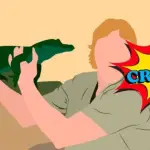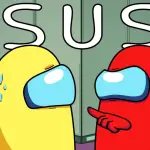Unveiling the World of LSD Street Slang
LSD, also known as acid, is a powerful hallucinogenic drug that has garnered various street slang names over the years. Understanding these terms is crucial for anyone seeking to comprehend the culture surrounding LSD use and abuse. Street slang for LSD often reflects the drug’s effects, appearance, or cultural references. These names are used in underground circles and may vary by region or subculture. Unveiling this world of LSD street slang sheds light on the language used by those involved in its distribution and consumption. It also provides insight into the evolving nature of drug culture and its impact on society.
Some common street names for LSD include “acid,” “tabs,” “blotter,” “dots,” “trips,” and “Lucy.” These terms are often used discreetly to avoid detection by authorities or individuals who may not be familiar with them. The prevalence of these street names underscores the need for awareness and education regarding illicit drug use.
As we delve into this intriguing realm of underground terminology, it becomes evident that understanding LSD street slang is essential for parents, educators, law enforcement officials, and healthcare professionals in their efforts to combat substance abuse. By unraveling these clandestine monikers associated with LSD, we gain valuable insights into the complexities of drug-related language and its implications for public health and safety.
Understanding the Origins of LSD Street Names
The origins of LSD street names can be traced back to the drug’s history and cultural impact. These monikers often reflect the drug’s effects, appearance, or the subcultures that have embraced its use. Understanding how these street names originated provides valuable insights into the evolution of LSD culture and its influence on language and society.
LSD, also known as “acid,” has a rich history dating back to its discovery by Swiss chemist Albert Hofmann in 1938. The drug gained popularity in the 1960s counterculture movement, leading to the emergence of various street names associated with its use. Terms such as “tabs,” “blotter,” and “trips” are rooted in this historical context, reflecting the methods of distribution and consumption prevalent during that era.
Furthermore, cultural references and psychedelic experiences have contributed to the creation of LSD street slang. The term “Lucy” is believed to be derived from “Lucy in the Sky with Diamonds,” a song by The Beatles that was thought to allude to LSD use. These linguistic connections highlight how popular culture has influenced the naming conventions surrounding this hallucinogenic substance.
By delving into the origins of LSD street names, we gain a deeper understanding of how language evolves within subcultures and how it reflects societal attitudes towards illicit substances. This exploration sheds light on the complex interplay between drug culture, history, and language.
Popular Street Slang Names for LSD
The lexicon of LSD street slang encompasses a diverse array of names used to refer to this hallucinogenic substance. These terms, often employed in underground circles, reflect the clandestine nature of LSD culture and its language. Understanding the popular street slang names for LSD is essential for gaining insight into the subcultures and communities where these terms are prevalent.
Among the most widely recognized street names for LSD is “acid,” a term that has become synonymous with the drug since its rise to prominence in the 1960s. Additionally, “tabs” and “blotter” are commonly used to describe small pieces of paper or cardboard infused with liquid LSD, while “trips” alludes to the psychedelic experiences induced by the drug.
Other popular street slang names include “dots,” which refers to small doses of LSD often found on blotter paper, and “Lucy,” derived from cultural references such as The Beatles’ song “Lucy in the Sky with Diamonds.” These varied monikers underscore the rich tapestry of language associated with LSD use and distribution.
By familiarizing ourselves with these popular street slang names for LSD, we gain valuable insights into how subcultures have shaped their own terminology around this potent hallucinogen. This exploration provides a window into the linguistic nuances that define drug culture and its impact on society at large.
Implications and Risks of Street Slang for LSD
Understanding the implications and risks associated with LSD street slang is crucial for comprehending the broader impact of drug culture on individuals and communities. The use of clandestine terminology for LSD not only reflects the subversive nature of illicit drug distribution but also carries significant implications for public health and safety.
The adoption of street slang names for LSD can contribute to a sense of secrecy and exclusivity within subcultures that embrace its use. This clandestine language may make it more challenging for authorities, educators, and healthcare professionals to identify and address instances of LSD abuse, potentially exacerbating the risks associated with its consumption.
Moreover, the proliferation of street slang names can perpetuate misconceptions about LSD within society. Misunderstandings surrounding these terms may hinder efforts to educate individuals about the dangers and consequences of using hallucinogenic substances. Additionally, the allure created by these covert monikers could potentially attract individuals who are curious or susceptible to peer influence, leading to increased experimentation with LSD.
By examining the implications and risks inherent in LSD street slang, we gain a deeper understanding of how language shapes perceptions and behaviors related to drug use. This exploration underscores the need for comprehensive education, outreach efforts, and support systems aimed at addressing substance abuse within diverse communities.
Recognizing and Addressing LSD Abuse
Recognizing and addressing lsd abuseis a critical aspect of promoting public health and safety within communities. The use of street slang names for LSD can serve as a red flag for potential substance abuse, prompting the need for proactive measures to identify and support individuals struggling with addiction or harmful patterns of drug use.
Signs of LSD abuse may include changes in behavior, mood swings, disorientation, and neglect of responsibilities. Recognizing these indicators can empower friends, family members, educators, and healthcare professionals to intervene early and provide the necessary support to those affected by LSD abuse.
Addressing LSD abuse requires a multifaceted approach that encompasses education, prevention initiatives, access to treatment resources, and community support networks. By fostering open dialogue about the risks associated with hallucinogenic substances like LSD and dispelling misconceptions perpetuated by street slang terminology, we can work towards creating safer environments for individuals vulnerable to substance misuse.
Furthermore, it is essential to provide accessible avenues for individuals struggling with LSD abuse to seek help without fear of stigma or judgment. Supportive interventions such as counseling services, addiction treatment programs, and peer support groups play a pivotal role in addressing the complex challenges posed by substance abuse within society.
By recognizing the signs of LSD abuse and implementing targeted strategies for intervention and support, we can contribute to mitigating the impact of illicit drug use on individuals’ well-being while fostering healthier communities.
Conclusion: Navigating the Complexities of LSD Street Slang
In conclusion, navigating the complexities of LSD street slang provides valuable insights into the language, culture, and implications surrounding the use of this potent hallucinogenic substance. By unraveling the world of LSD street slang and understanding its origins, popular names, implications for public health, and strategies for addressing abuse, we gain a comprehensive understanding of the multifaceted nature of drug culture.
As we explore the diverse array of street names associated with LSD and recognize their potential impact on individuals and communities, it becomes evident that education and awareness are crucial in addressing substance abuse. By recognizing signs of LSD abuse and implementing targeted strategies for intervention and support, we can contribute to mitigating the impact of illicit drug use on individuals’ well-being while fostering healthier communities.
It is essential to continue fostering open dialogue about substance misuse while providing accessible avenues for individuals struggling with LSD abuse to seek help without fear of stigma or judgment. If you or someone you know is grappling with substance abuse issues related to LSD or any other drugs, seeking professional assistance is a vital step towards recovery.
Let’s work together to promote education, support networks, and resources aimed at addressing substance abuse within diverse communities. By doing so, we can navigate the complexities of LSD street slang while striving towards creating safer environments for all individuals.









